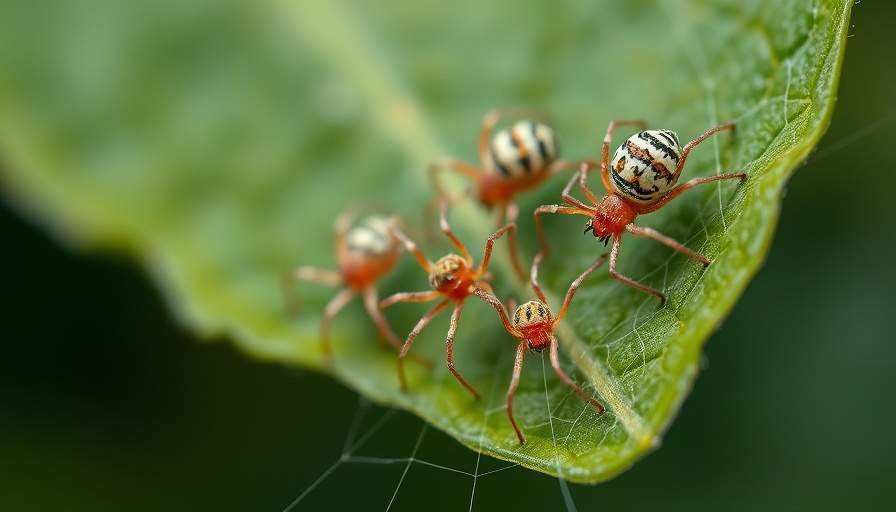
Understanding the Threat: What Are Spider Mites?
Spider mites, a common yet often overlooked pest in gardens, can wreak havoc on your plants if left unchecked. Unlike insects, these eight-legged creatures belong to the arachnid family, much like their infamous cousins - the ticks. These minute, practically invisible pests thrive on a variety of plants, ranging from ornamental flowers to vegetables, making them a significant concern for both amateur and seasoned gardeners alike. Their seemingly innocent presence belies the extensive damage they can inflict, particularly under hot and dry conditions.
The Telltale Signs: Identification and Symptoms
Identifying spider mites early is crucial for effective control. Look for signs of yellowing or stippling on leaves—tiny dots often signal that these pests have already begun feeding on your plants’ vital fluids. By the time you notice visible damage, the infestation may be well underway, as spider mites can multiply rapidly.
There are a few other telltale signs to assist in your identification process. These include webbing on the leaf undersides, which resembles that of a spider. It’s this webbing that helps spider mites disperse and survive harsh conditions. With this knowledge, you can be proactive in preventing extensive damage to your cherished plants.
Prevention is Key: Maintaining Plant Health
Taking a proactive stance on plant health can keep spider mites at bay. Start by ensuring your garden is well-ventilated and not overcrowded, as high humidity and lack of airflow create ideal breeding grounds for these pests. Regularly check your plants for signs of stress—such as wilting or yellowing leaves—and address any underlying issues immediately. Remember, stressed plants are more susceptible to spider mite infestations.
Effective Monitoring Techniques for Early Detection
Your weed-whacker! One of the best tools you have in your arsenal is the power of observation. Consider integrating regular monitoring into your gardening routine. Using a white piece of paper or clipboard while shaking plants can reveal tiny specks falling—those are likely spider mites. Weekly inspections during warm months are particularly valuable, so you catch these marauders before they can do any real harm.
Natural Solutions: Organic Control Methods
For gardeners who prefer to keep chemicals out of their plots, there are several organic control methods to consider. Introducing beneficial insects, such as ladybugs, can significantly reduce spider mite populations, as they feed on these pests. Horticultural oils and insecticidal soaps are also effective organic options, creating a hostile environment for spider mites without damaging your plants. Regularly inspecting and removing infested leaves can make a difference, too.
When to Turn to Chemical Pesticides
In some cases, particularly with severe infestations, chemical control measures may be necessary. But approach these solutions with caution—choose targeted pesticides to minimize their impact on beneficial insect populations. Always follow the manufacturer's instructions on safe application to protect not just your plants, but also the surrounding ecosystem.
Learning from Experience: Anecdotes of Control
As a former IPM specialist, I recall numerous encounters with spider mites that taught me valuable lessons in pest management. One particularly challenging summer, our greenhouse became infested, and despite our best efforts, we faced extensive crop loss. This experience reinforced the importance of being vigilant and proactive. Every gardener’s goal should be not just to react, but to anticipate and prevent infestations before they spiral beyond control.
Take Charge of Your Garden: Final Thoughts
Now that you have a better understanding of spider mites, it’s time to put this knowledge into action. Remember to monitor your plants regularly, maintain their health, and act quickly if you notice any signs of infestation. By staying informed and proactive, you can protect your garden and ensure a flourishing environment for your plants.
Time to take charge: Don’t let spider mites ruin your gardening efforts. Apply these tips today and enjoy a healthier, more vibrant garden!
 Add Row
Add Row  Add
Add 




Write A Comment